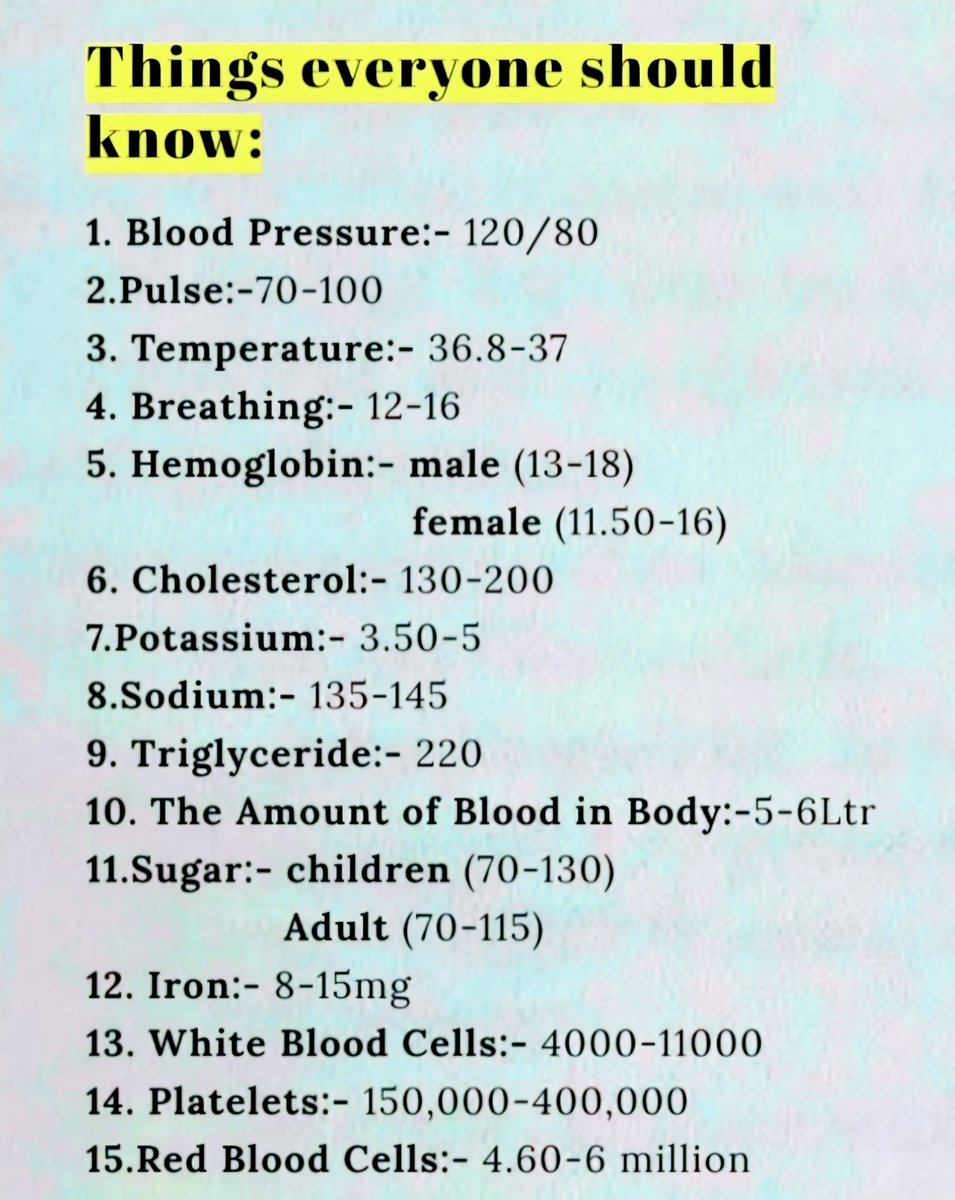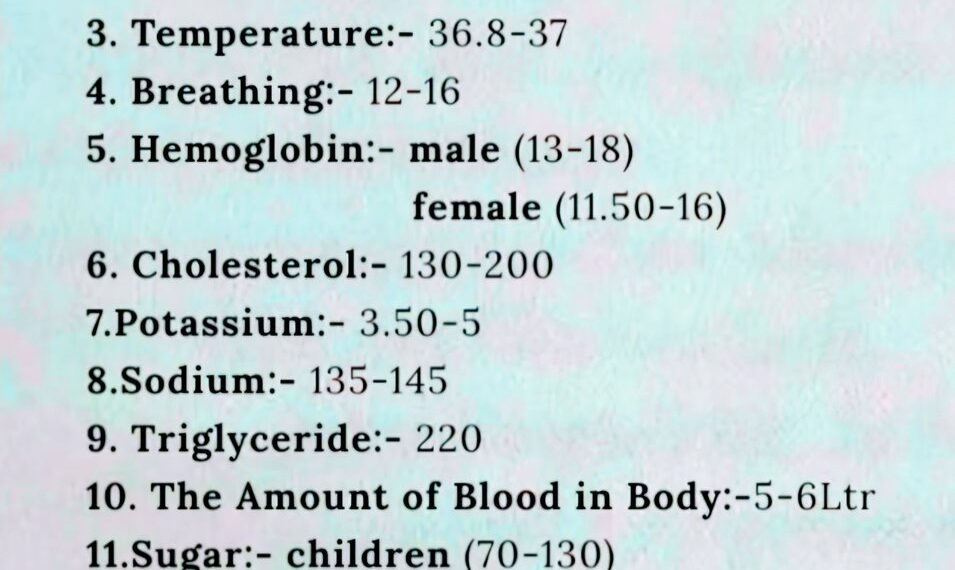Select Language:

Staying informed about your health is crucial in today’s fast-paced world. Understanding the vital signs and health metrics can empower individuals to maintain their well-being and make informed decisions regarding their healthcare. Here’s a comprehensive guide to the 15 key health metrics everyone should know.
Blood Pressure – 120/80
Blood pressure is a critical indicator of cardiovascular health. The ideal measurement is around 120 over 80 mmHg, which signifies that your heart is efficiently pumping blood throughout your body. Regular monitoring can help detect any abnormalities early on, allowing for timely intervention.
Pulse – 70–100 bpm
Your heartbeat, or pulse, should range between 70 and 100 beats per minute when you are at rest. A higher or lower pulse rate can indicate underlying health issues. Athletes may exhibit lower resting heart rates, while anxious or stressed individuals might see elevated rates.
Temperature – 36.8°C–37°C
A normal body temperature typically falls between 36.8°C and 37°C (98.2°F to 98.6°F). Deviations from this range can signal infections or other health concerns. Regularly checking your temperature can help in the early detection of illness.
Breathing Rate – 12–16 breaths/min
The normal breathing rate for a healthy adult is between 12 to 16 breaths per minute. Abnormal rates can indicate respiratory issues, anxiety, or cardiovascular problems. Monitoring your breathing rate can provide insights into your overall respiratory health.
Hemoglobin Levels
- Male: 13–18 g/dL
- Female: 11.5–16 g/dL
Hemoglobin is a protein in red blood cells responsible for transporting oxygen. It’s essential to maintain healthy hemoglobin levels for optimal energy and vitality. Low levels can suggest anemia, while elevated levels might indicate dehydration or other medical conditions.
Cholesterol – 130–200 mg/dL
Cholesterol is necessary for many bodily functions, but too much can lead to heart disease. A normal cholesterol level should fall between 130 and 200 mg/dL. Regular testing can help manage your cholesterol and maintain heart health.
Potassium – 3.5–5.0 mmol/L
Potassium is vital for muscle function and nerve signaling. The ideal level is between 3.5 and 5.0 mmol/L. Low potassium can lead to muscle weakness, while excessive levels can impact heart rhythm and lead to serious complications.
Sodium – 135–145 mmol/L
Sodium plays a crucial role in regulating blood pressure and fluid balance. A healthy level should range from 135 to 145 mmol/L. Too much sodium can contribute to high blood pressure, increasing the risk of heart disease and stroke.
Triglycerides – 220 mg/dL (upper limit)
Triglycerides are a type of fat found in your blood. Keeping levels below 220 mg/dL is ideal. Elevated triglycerides can increase the risk of heart disease and are often linked to obesity and diabetes.
Amount of Blood in the Body – 5–6 liters
An average adult has about 5 to 6 liters of blood in their body. Maintaining this volume is essential for proper bodily functions. Significant blood loss can lead to serious health issues.
Blood Sugar Levels
- Children: 70–130 mg/dL
- Adults: 70–115 mg/dL
Monitoring blood sugar levels is essential, especially for those with diabetes. For children, a healthy range is 70–130 mg/dL, while adults should aim for 70–115 mg/dL. Regular monitoring can help prevent complications from high or low blood sugar.
Iron – 8–15 mg/day
Iron is crucial for producing hemoglobin. Adults should aim for an intake of 8 to 15 mg of iron per day. Low iron levels can lead to anemia, causing fatigue and weakness, while too much can lead to serious health risks.
White Blood Cells (WBC) – 4,000–11,000 cells/μL
White blood cells are your immune system’s frontline defenders. A normal count ranges from 4,000 to 11,000 cells per microliter. Too few white blood cells can weaken your immune response, while too many can indicate an infection or other medical conditions.
Platelets – 150,000–400,000 cells/μL
Platelets are essential for blood clotting. A normal count should fall between 150,000 and 400,000 cells per microliter. Abnormal levels can indicate various health issues, including clotting disorders or bone marrow problems.
Red Blood Cells (RBC) – 4.60–6 million cells/μL
Red blood cells are responsible for carrying oxygen throughout the body. The normal range is about 4.60 to 6 million cells per microliter. Low levels may indicate anemia, while high levels can be a sign of dehydration or other medical concerns.
Understanding these vital health metrics can dramatically influence your well-being. Regular monitoring can help you stay on top of your health and allow for timely medical interventions when necessary. Taking charge of your health is one of the best investments you can make for yourself.




